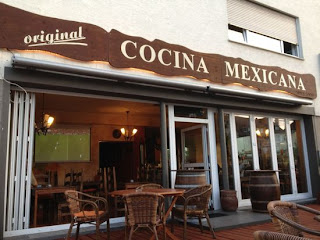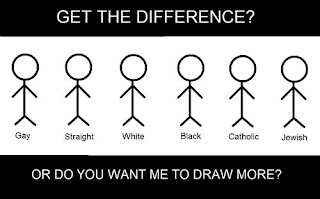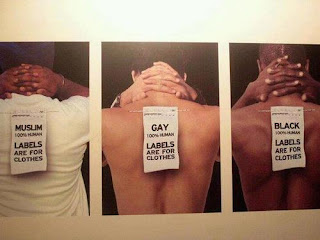Travel connects us, not only to people in present day, but all thorugout time. I realized this while road tripping in 2016. On my quest to complete my “All 50 States” tour, I pulled over along a desolate highway. The sunset views against Arizona’s Painted Desert deserved so much more than a passing glance as I drove through. I got out of my car and stood amidst absolute, complete silence and watched nature take place.
I’d never seen anything like it. Iridescence cascaded from the heavens into earth like a visual coloratura across the sky. The creator painted momentary murals on rock formations. Fallen, petrified trees from the late Triassic period, — 225 million years ago —- interspersed throughout the barren landscapes soon gave way to majestic silhouettes accented by stars that seemed to applaud the performance.
There I stood. This little country girl a long way from home, standing somewhere between, “the bright blessed day and dark sacred night” that inspired Armstrong’s rejoicing in, “What a Wonderful World.”
Wonderful world, indeed.
God was just showing off.
At that moment, a long-buried movie quote rose to the surface of my mind:
“In the desert, when the sun comes up, I couldn’t tell where heaven stopped, and Earth began. It was so beautiful.”
I finally understood. When I watched that movie back in 1995 and all the dozens of times since I liked the quote. I grasped the concept. But for the first time, while standing next to my hoopty, all alone in a desolate desert… I understood. I too struggled to distinguish Heaven from Earth.
Engulfed in awe of this masterpiece, my heart overflowed with gratitude that the composer saw fit to share this moment with me. Surrounded by both vast nothingness and the density of significance at once, all the people I love came to mind. I wanted them to have a moment like this. I wished my loved ones could witness a moment like this. I craved for everyone to feel all of this. And perhaps they had.
As I edit this post six years after original publication, I recall the same scene, when Jenny tells Forrest that she wishes she could have been there with him. He responds, “You were.”
Just like Forrest, in the most beautiful moments of life, my heart and mind go to those I love; they are with me.
And maybe that’s a phenomenon of travelers. Of observers. Of dreamers or artists. When surrounded by beauty we are connected by generations of love. Travel connects us to other travelers. Travel connects us to ideas. To dreams. And to beauty.
Historian Perspective
As a historian, I view the world through a historical lens. Whereas an engineer may look at something and ask how? I ask why and look for clues left by previous generations to learn the story. I travel to cover as much ground as possible. So I intentionally increase the probability that I trace the steps of my predecessors. I try to have many unique experiences so when others experience the same, it bridges a gap of understanding in a way that couldn’t be explained by words and pictures.
For example, I grew up in a military family. Saturday mornings often started with a G.I. Party (the military community knows this is not an exciting event). Getting ready for school came with the expectation that it only takes three minutes to run “The Three S’s” (sh!t shower and, shave). After 22 years growing up in that environment, it wasn’t until I experienced military training I learned for myself. It is indeed possible to get ready in three minutes (which is 90 seconds more than what’s actually needed).
That experience helps me relate to every warfighter in every land — froom every timeperiod. It helped me understand and connect my veteran parents, grandfathers, uncles, cousins in a way that I didn’t before. I could empathize with soldiers embracing the suck in Brandywine. I had more data to consider the thoughts and emotions of officers battling their former West Point classmates. Because of my experiences, I recognize the same mentality of young soldiers defacing markers in Colonial Park Cemetery, Savannah. Shared experiences, especially those like travel, connect us to those past and present.
Travel Is a Vehical to Connects Us To The Past
Travel is one of the experiences that increase connection. Visiting Charleston filled me with an enormous sense of connection to the past. Although I don’t know for sure, the statistics make it highly probable that someone from my family’s heritage walked the same cobblestone streets centuries before. Living in Boston gave me insight on why as a young graduate student, Martin Luther King lived in Roxbury, so far from Boston University. And why many Black students and young professionals make the same choice today).
Visiting the homes and frequented localities of those from the past gives a snapshot of the surroundings, how they lived, and what influenced their thoughts. It helps to understand how they worked through some of their decisions and thought processes. Even after reading Little Women multiple times and watching both versions of the movie, it wasn’t until I visited the March family home, Orchard House, in Concord, Mass, that I felt that I really got to know the family and understood the context of their lives.
Tracing the steps of James Baldwin, Richard Wright, and Lois Mailou Jones in Paris’ Latin Quarter helped me to understand their muses. I know, from visiting the Kennedy Library, that Jacqueline took a cruise to Paris with friends during college. It was the best year of her life. And I can only imagine why based on my trips abroad in college, my trips to Paris, and the best year of my life which happened while abroad in Latin America.
Travel Connects to the Future
I don’t know details of travel or frequented localities for most of my family. I’d like to able to know and connect with my family in the same way I do with historical or fictional figures; but so much of my family’s history went undocumented.
Today, I do have some say over the breadcrumbs I leave for my future family. I can be intentional about the paths I leave behind. I can travel to search out a diversity of experiences. That way I can find some commonality with people I encounter today and yesteryear. But also in the future.
So, I travel. I do things. I leave clues for those to come. Perhaps, when my progeny find themselves randomly out in the middle of the desert, witnessing nature in all its glory, and they’re longing for someone to share it with, they’ll know they had an adventurous grandma/auntie who went everywhere and saw everything and felt the same way. Travel connects us to people — past present and futre.
Other stories on how Travel Connects us, check out these stories:
5 Reasons to Love Multi-Generational Travel • GloBelle Affairs





